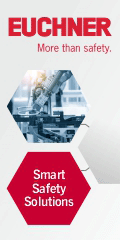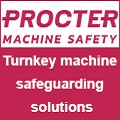
Posted to News on 2nd Jul 2015, 17:01
Why use a DC motor controller?
For most applications involving a DC or BLDC (brushless DC) motor, it is advisable to use a motor controller; in fact, if you are using a brushless (electrically commutated "EC") motor, then you have to use a controller to fire the correct phase winding at the right time.
For all DC motor brushed types, here are the common reasons why:
Motor protection: Most modern controllers have the following protections: under-voltage, over-voltage, short circuit protection, current limit protection, thermal protection and voltage transients. Without these protections the motor is "exposed" to threats that will possibly result in permanent electrical or mechanical damage.
Speed control: All DC motors will lose speed as they are loaded and increase in speed when they are unloaded, in a linear fashion, according to their speed/torque gradient. For applications where a specific speed is required, with an unknown load (so a final speed cannot be calculated), or a fluctuating load (conveyor belt, pump, grinding tool, reel / converter, Cam), a controller is a must. A DC servo motor's resultant speed is defined by the equation:
[EQUATION HERE]
In the cam application in particular, where the motor is operating as a "motor", for half the cycle and a "generator" for the other half, as the load "pushes" the motor a four quadrant drive must be used. This provides dynamic breaking control, to ensure the motor remains under control and at the constant speed. It is not possible to achieve this with a simple supply or a simple single quadrant controller. The controller must also cope with the varying load, yet maintain the motor at a constant speed, by varying the voltage to the motor as the load changes to compensate.
In fan and pump applications the power curve follows the "square law", i.e. for an incremental increase of the speed the power increase is to the second power. Using a speed controller to lower the speed of the motor to meet the demands of a system, in place of constricting the flow from the pump or fan whilst running the motor at full speed will reduce the power consumption. That said, there are losses across the controller, typically 1-5 per cent, but these are minimal in comparison with the motor or the mechanics it is linked to.
Torque control: A DC motor's current is proportional to the torque delivery. Having control over the current to the motor will govern its torque delivery. Without control of the DC motor torque/current, the motor is allowed to pull large currents that can often result in torques delivered in excess of what is mechanically viable for the system, leading to imminent failure (especially when gear with a large reduction ratio is used). Also, failure can be in the form of burn-out from stalling the motor, for instance when the mechanics are jammed. In this condition, unless the current is limited, the motor pulls the stall current. The stall current is far from the operating area of the motor and will cause a thermal failure in normally few seconds.
Summary: the benefits of using a controller
- Electrical protection of the motor and subsequently the mechanics
- Maintains constant speed, even when loads are changing
- Dynamic response to changing system demands, even in a braking condition with 4-quadrant drive
- Monitoring to evaluate machine performance / diagnostics
- Energy saving
- Accurate speed control
For more information about DC motor controllers please visit www.maxonmotor.co.uk.
Want the latest machine building news straight to your inbox? Become a MachineBuilding member for free today >>















